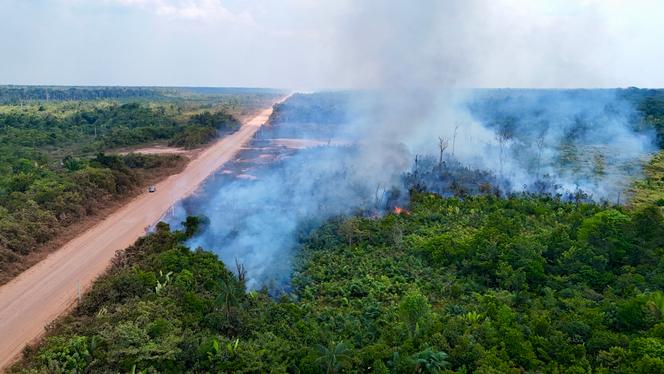


In Brazil, there is one statistic that is as eagerly awaited as the unemployment rate or the GDP growth: The progress of deforestation in the Amazon. Results published on Wednesday, November 6 by Brazil's National Institute for Space Research show that, between August 2023 and July 2024, 6,288 square kilometers (km2) of forest were destroyed – 30.6% less than the previous year and a nine-year low.
This number confirms the trend that began with Luiz Inacio Lula da Silva's return to power. In 2021, the worst point for deforestation during President Jair Bolsonaro's term (2019-2023), 13,000 km2 of jungle were being cleared in the Brazilian Amazon – twice the current level. The restoration of public environmental protection agencies, which had been weakened and gutted during Bolsonaro's far-right administration, has produced rapid, positive and tangible effects.
The impacts of this policy have been felt in every region, particularly in Rondônia, one of the hardest-hit states in Brazil, where deforestation has now dropped by 62.5%. It has also benefited other ecosystems, such as the fragile Cerrado savannas, considered to be the "water tank" of Latin America. After several years of worrying increases, just 8,174 km2 of vegetation were destroyed there between August 2023 and July 2024 – a decrease of 25.7%.
"A significant drop in deforestation in the Amazon for the third consecutive year is undoubtedly good news," said Mariana Napolitano, strategy director at WWF Brazil in a press release. But, far from celebrating, she stressed that these good results are "not enough given the scale of the climate and biodiversity preservation challenges we face."
Indeed, Brazil was severely impacted this year by a huge number of fires resulting from the combination of global warming and a historic drought: 243,000 fires were recorded in the country between January and October (half of them in the Amazon), compared with 151,000 for the same period in 2023. At least 22 million hectares were affected by the flames – an area the size of the United Kingdom. Many of the scorched plots had been cleared years earlier for cattle ranching, a sector responsible for 80% of Amazon deforestation.
Environmentalists have also denounced Lula's support for oil drilling and road construction in the region, such as the 885-kilometer BR-319 highway, which links the major cities of Manaus and Porto Velho and which the government aims to pave. All of these projects conflict with the government's ambitious goal of "zero deforestation" by 2030.
You have 26.55% of this article left to read. The rest is for subscribers only.
